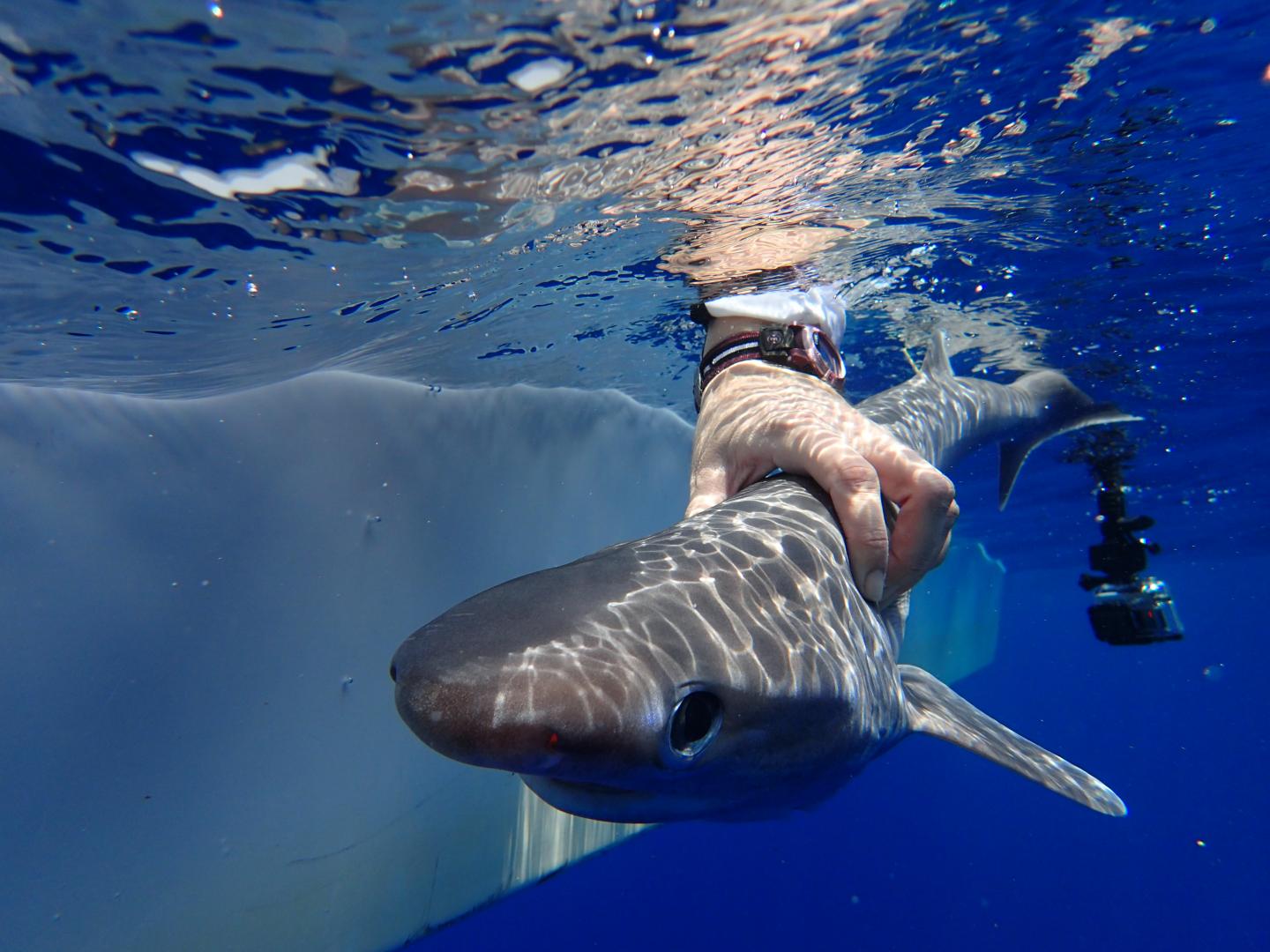New shark species discovered in the Atlantic Ocean had ancestors older than dinosaurs
The new species, named the Atlantic sixgill shark, are only around 6 feet long and have rare saw-like teeth.



Scientists have discovered a new species of shark which makes its home in the Atlantic Ocean. This particular family of the deep-sea predators was so elusive that it took scientists decades to identify that a new species exists in the Atlantic Ocean.
The species belongs to the sixgill sharks family and has been named the Atlantic sixgill shark. Unlike the sixgill sharks residing in the Indian and Pacific oceans, who share similarities with each other, the Atlantic sixgill sharks are different, although the differences are not easy to spot for the naked eye.
Scientists analysed 1,310 base pairs of two mitochondrial genes and found enough differences to determine that what has long been considered to be a single species is actually more diverse. The Atlantic variety of the sixgill sharks has been renamed to Hexanchus vitulus.
"We showed that the sixgills in the Atlantic are actually very different from the ones in the Indian and Pacific Oceans on a molecular level, to the point where it is obvious that they're a different species even though they look very similar to the naked eye," Toby Daly-Engel, an assistant professor of biological sciences at Florida Tech and lead researcher of the new study, said in a statement.
The sixgill sharks are one of earth's oldest residents, with their ancestors dating back to 250 million years. This means that these deep-sea predators existed and began evolving even before dinosaurs roamed the earth. However, these sharks have been extremely difficult to study because they live thousands of feet deep within the ocean.
The newly identified sharks are smaller compared to their relatives swimming in the Indian and Pacific oceans. While the Indo-Pacific sixgill sharks grow to be over 15 feet long, the Atlantic sixgill sharks are only around 6 feet long. The new shark species also have unique, saw-like teeth in their lower jaw and six gill slits.
"Because we now know there are two unique species, we have a sense of the overall variation in populations of sixgills. We understand that if we overfish one of them, they will not replenish from elsewhere in the world," Daly-Engel said, adding that the new research also boosts better understanding of shark diversity. "Particularly diversity in the deep ocean, which we don't know much about," Daly-Engel added.
The new research was the collaborative work of researchers from Florida Institute of Technology, MarAlliance, Florida State University Coastal and Marine Laboratory and the National Marine Fisheries Service, Southeast Fisheries Science Center.
The new research has been published in the journal Marine Biodiversity. Click here to access the PDF version of the research.




















